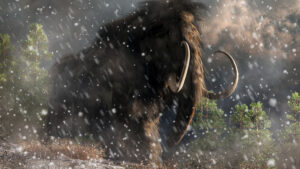Playing a joke on your buddy, sibling, or parent is the oldest trick in the book, according to new research.
Actually, it’s a lot older than any book. A study published Tuesday in the Proceedings of the Royal Society B identified “playful teasing” in four species of zoo-housed great apes. The chicanery, which revolves around tactics any class clown would recognize right away, indicates it’s likely that our distant ancestors also whiled away more than a few nights cracking jokes.
“As playful teasing is present in all extant great ape genera, it is likely that the cognitive prerequisites for joking evolved in the hominoid lineage at least 13 million years ago,” the California-based team wrote.
The broad-ranging study focused on nine bonobos (Pan paniscus), four orangutans (Pongo abelii), and four gorillas (Gorilla gorilla and Gorilla beringei) at the San Diego Zoo, plus a group of 17 chimpanzees (Pan troglodytes) at the Leipzig Zoo.
Each zany group exhibited attention-getting behavior, escalation or elaboration, and other techniques suggesting the ability to violate peers’ expectations — in other words, to land a punchline.

Photo: Shutterstock
Teasing the old folks
The mechanics generally followed another familiar trope: brazen youth teases crotchety elders. Researchers found the fireworks generally started when the (well-fed, comfortably housed) apes were relaxed. Eventually, one of the group (usually a youth but not always) would acquire an adult target.
Then, the ape would pounce. Hair pulling, rib poking, and general physical and vocal hazing were the hits.
Taken in and of itself, that could just be monkey business. The key was what the researchers saw next. Soon, the antagonist ape would abandon the teasing and make a brief run for it — then pause to look back at the target.
The researchers call it “response looking.” Comedians call it “waiting for a laugh.”
“They actually look toward the target, probably because they want to see their reaction,” lead author Isabelle Laumer, a primatologist at the Max Planck Institute, told The Hill — adding that it’s “especially interesting.”
Waiting for a reaction
If the jokester didn’t get feedback? Generally, they’d try again, only harder this time. And keep doing that until they cause some reaction.
Other patterns emerged, such as a disparity in force of stimulus between adults and juveniles. While young apes would generally wail on the adults, the adults would just poke or tickle back. Older sisters were especially targeted, and mothers were generally off-limits.

Young chimpanzees at Switzerland’s Walter Zoo. Photo: Tambako the Jaguar via Flickr
The observational data from the study isn’t exactly new. Jane Goodall led the vanguard of 20th-century research into great apes’ emotional profiles, but other 20th-century sources acknowledged that they were prone to “annoy,” “pester,” or “harass” each other.
The human cultural tendency to personify apes is even less novel. Of course, they’re not always jokesters, but funny monkeys have entertained us from Curious George to Donkey Kong to TikTok and beyond.
What’s different now? It’s significant to connect the apes’ so-called playful teasing with the technical facility of making jokes. Landing a joke requires social wherewithal and nuanced awareness of others — not just a penchant for harassment.

Chimps at Taronga Zoo, Sydney, Australia. Photo: Marc Dalmulder via Flickr
“We’re pivoting to entertain the possibility that animal minds are not always serious — not always about the next action needed for survival,” said co-author Erica Cartmill of the University of California, Los Angeles (UCLA).
Cartmill could be right — unless you’re dying for a laugh.






